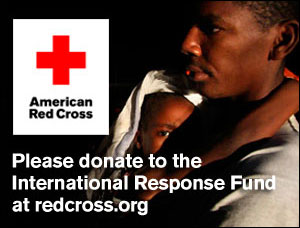
By Rene Stutzman, Orlando Sentinel
11:58 PM EDT, June 13, 2010
It was 2003, and this is how it started in Florida: Sheila Meehan had dozens of boxes stacked in her Tallahassee garage filled with letters and legal paperwork from hundreds of Florida inmates who claimed they were innocent and that DNA tests would prove it.
Meehan and her boss, Jennifer Greenberg, were launching the Innocence Project of Florida. Money was so tight, they set up desks in a rent-free space — a broad hallway at the top of a flight of stairs at the Florida State University College of Law.
Meehan and Greenberg have since left the nonprofit, but their groundwork paid off: DNA testing has freed a dozen Florida inmates since 2000.
And now the Florida Supreme Court is about to get involved. The high court is about to hire a full-time lawyer and name a panel to investigate how the criminal-justice system failed those people.
It is creating the Innocence Commission. It will not look for inmates who have been wrongly convicted but will examine systemic flaws that sent innocent people to prison
Meehan and Greenberg have since left the nonprofit, but their groundwork paid off: DNA testing has freed a dozen Florida inmates since 2000.
And now the Florida Supreme Court is about to get involved. The high court is about to hire a full-time lawyer and name a panel to investigate how the criminal-justice system failed those people.
It is creating the Innocence Commission. It will not look for inmates who have been wrongly convicted but will examine systemic flaws that sent innocent people to prison.
Meehan, Greenberg and others who have worked to free the innocent are thrilled.
"We're obviously pretty ecstatic about the idea that there will be a serious examination at the highest levels of the criminal justice system of why people are wrongfully convicted and wrongfully incarcerated," said Seth Miller, executive director of the Innocence Project of Florida.
How many innocent people are currently in state prisons?
"I don't think anybody knows," Miller said, but his organization is awaiting DNA results on "a handful" of cases.
Since 2000, 11 men have been freed from Florida prisons following DNA testing, according to the project.
A 12th inmate, Frank Lee Smith, was exonerated 11 months after he died of cancer in 2000. He was wrongly convicted of raping and murdering a Broward County child. He died on death row.
Broward County leads the state in the number of convicted inmates freed or exonerated following DNA testing — four. Brevard is second with two, Wilton Dedge and William Dillon.
Dedge was freed after 22 years in prison when DNA proved he did not rape and slash a 17-year-old girl in Sharpes. She told two juries Dedge attacked her.
Dillon was released in 2008 after serving 27 years for the conviction of beating a man to death at Canova Beach. A court threw out his conviction, and prosecutors decided not to retry him after tests found the DNA of two other people on a bloody T-shirt that prosecutors said was worn by the killer. Dillon's DNA was not on it.
Brevard-Seminole State Attorney Norm Wolfinger has at times opposed DNA testing for convicted inmates but said he would work with the new commission. Wolfinger was not in office when Dedge and Dillon were convicted.
DNA testing has freed one other Central Florida convict: James Bain, who was released in December after serving 35 years for a Lake Wales child kidnapping and rape.
It has not exonerated any inmates from Orange, Seminole, Osceola, Lake or Volusia counties.
Earlier this year, the Florida Legislature funded the commission for one year, providing $200,000. Its work will probably take two years, said Lisa Goodner, Florida's state court administrator. Commission advocates are expected to press for more funding next year.
A smarter investment by lawmakers, Wolfinger said, would be to plow more money into DNA labs run by the Florida Department of Law Enforcement.
"The advent of DNA has been fantastic to prove guilt or prove innocence," he said.
William Cervone is less supportive of the commission. He is state attorney for the Eighth Judicial Circuit, which includes Alachua County, and serves as president of the Florida Prosecuting Attorneys Association.
No prosecutor wants to lock up innocent people, he said, but he added, "I don't know what another commission at public expense will do."
People who have been wrongly convicted, he said, already have a remedy — appeals courts.
The commission is expected to have a staff of two: a lawyer/executive director and an assistant. They're expected to assist a not-yet-named commission that will likely conduct a series of public meetings throughout the state, Goodner said.
Among the issues it likely will target are false confessions, eyewitness misidentifications, police interrogation techniques and the use of jailhouse informants, she said.
"There are lots of wrongful convictions," said Bob Wesley, elected public defender for Orange and Osceola counties, "but how do you parse through the ones . . . that truly have merit?"
Scott Rost is an Orlando business and real-estate lawyer. He doesn't represent criminals, but he is a board member of the Innocence Project of Florida. He helped Meehan and Greenberg review cases when they still worked in at the top of the stairs at FSU.
"It's hard to see anything to disagree with," he said, "in continuing to look hard for the truth."
Rene Stutzman can be reached at rstutzman@orlandosentinel.com or 407-650-6394.




No comments:
Post a Comment